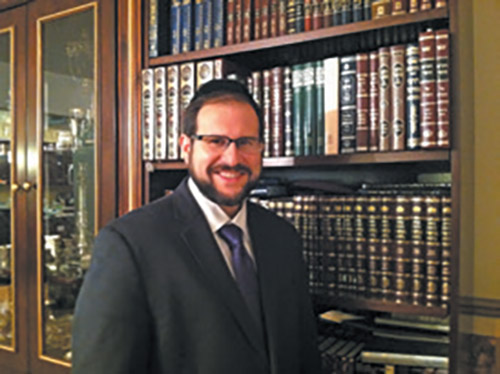

“So, Rabbi, bottom line—what’s the deal with drinking on Purim? What’s the message we are supposed to take from this unusual law?”
That was the question I was asked by a sincere and thoughtful congregant last week. I first replied that I once asked Rav Reuven Feinstein what is the simple explanation for the strange vernacular of the Gemara in conveying that there is a mitzvah to become intoxicated on Purim “until he cannot differentiate between cursed is Haman and blessed is Mordechai.” Rav Reuven replied that the law has no simple meaning. It was “written in the spirit of Purim.” [That doesn’t mean it’s a joke, but rather that it was written in the unusual “out of the box” yet lofty nature of Purim.]
I then told the questioner that when one is about to begin drinking he (hopefully) hands over his car keys. He realizes that under the influence of alcohol he will not have proper judgment or perspective to drive. He therefore places himself in the hands of someone else who will be able to care for him and ensure he is safe.
During the unfolding of the Purim story, the unexpected became the norm; whatever seemed to be happening prima facie ended up being exactly the opposite. Therefore, the Yom Tov of Purim is a poignant reminder that, ultimately, we are not in control over our lives. Undoubtedly, we are responsible to do our part, to ensure that we have always invested the requisite effort and fulfilled our responsibilities, but what the consequences of our efforts will be is totally out of our hands.
The past few months have afforded us plenty of reminders of the veracity of this concept, with a few incredibly surprising, last-second shockers. Most profoundly was the election of President Trump and the upheaval that it caused. In the world of sports, if someone walked out two minutes before the end of the Super Bowl, he would have been shocked the next morning when he was informed of the outcome.
And, for those of us on the East Coast, how about the recent weather? It was a relatively mild winter, and February set records for warmth, with temperatures surging into the upper 60s and even hitting 70 degrees. Yet, I am currently typing this while a blizzard rages outside, burying the Monsey area in well over a foot of snow. [I think it’s raining in Lakewood.] On Purim itself, just two days ago, despite beautiful sunshine, the weather was below freezing.
The underlying message? We are not in charge!
Psychologically, the source of tragedy and comedy is essentially the same—irony. When the irony works against us we cry, such as on Tisha B’av. The Navi writes (Megillat Eicha) that no one believed that the great and beautiful metropolis of Yerushalayim, and the Beit Hamikdash, could be destroyed.
However, when the irony works to our benefit, we laugh and revel in the great salvation that transpired. That is the source of the extreme joy of Purim.
Purim gives us an unparalleled boost of chizuk. A good friend recently quipped that “Moshiach is so far away. Look at how much pain there is, and look how dis-unified we are.”
I replied that at the time of Purim things seemed even more hopeless. Our nemesis had successfully prevailed upon the anti-Semitic king to agree to mass genocide. There was nowhere for the Jews to run or hide. Yet within three days of the decree, Haman was dead and the turnabout was set in motion.
Rav Moshe Shapiro, zt”l, explained that the source for the salvation of Purim came about from our enemies themselves. Therefore, the worse things seemed to be, the better they actually were beneath the surface. He then adds, “Clearly, the ultimate redemption will not occur through gradual changes but by an instantaneous inversion… The inversion will be so complete, the contrast so sharp, that we will be compelled to laugh… One who seeks to invert, the greater the contrast the stronger the inversion … This is not something we have the capability to bring about. Only the Divine can turn things around in such a manner.”
Purim was a living example of how it can happen, and a chizuk that somehow it will happen again.
Until then, we need to remind ourselves that after doing our part and fulfilling our responsibilities, we need to “hand over the keys” to our loving Father in Heaven, and to fulfill whatever role and responsibility He places us in.
With that perspective in mind, we begin to prepare and anticipate the Yom Tov of Pesach, chag hageulah.
By Rabbi Dani Staum
Rabbi Dani Staum, LMSW, is the rabbi of Kehillat New Hempstead, guidance counselor and seventh-grade rebbe in ASHAR, principal at Mesivta Ohr Naftoli of New Windsor, and division head at Camp Dora Golding. He also presents parenting classes based on the acclaimed Love and Logic methods. His email address is: [email protected]. His website is: www.stamtorah.info.













